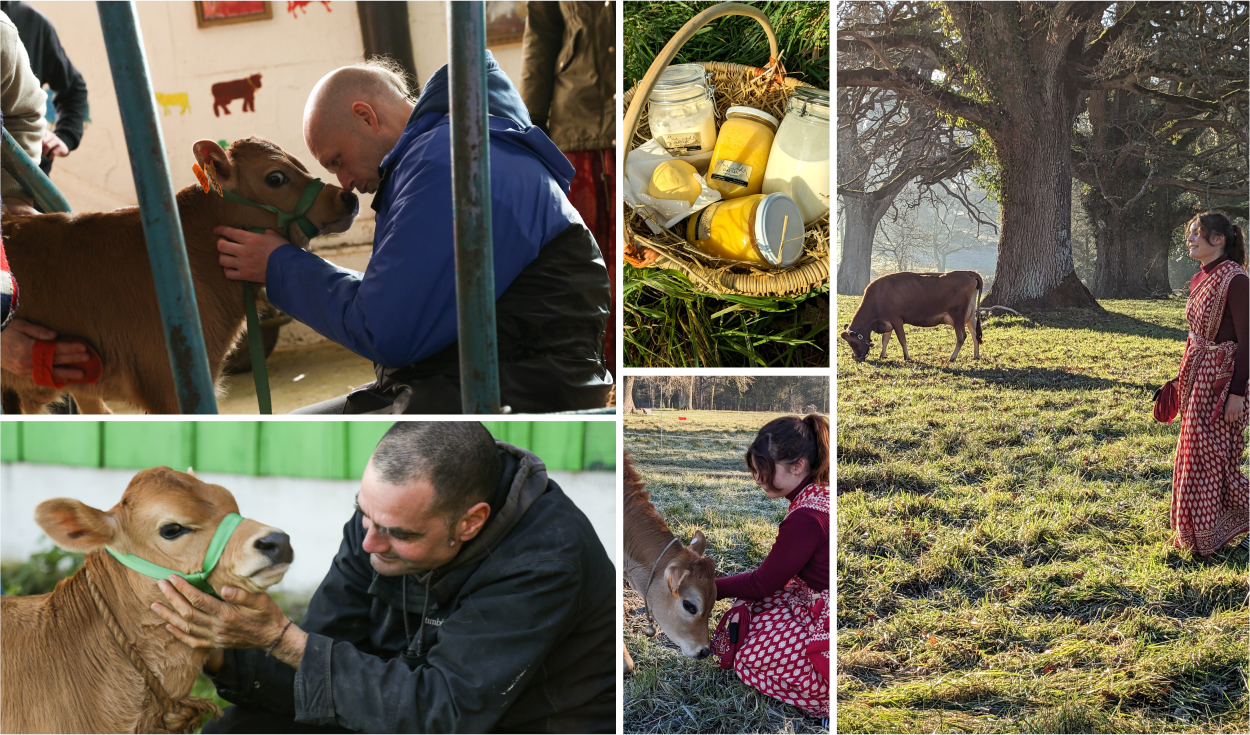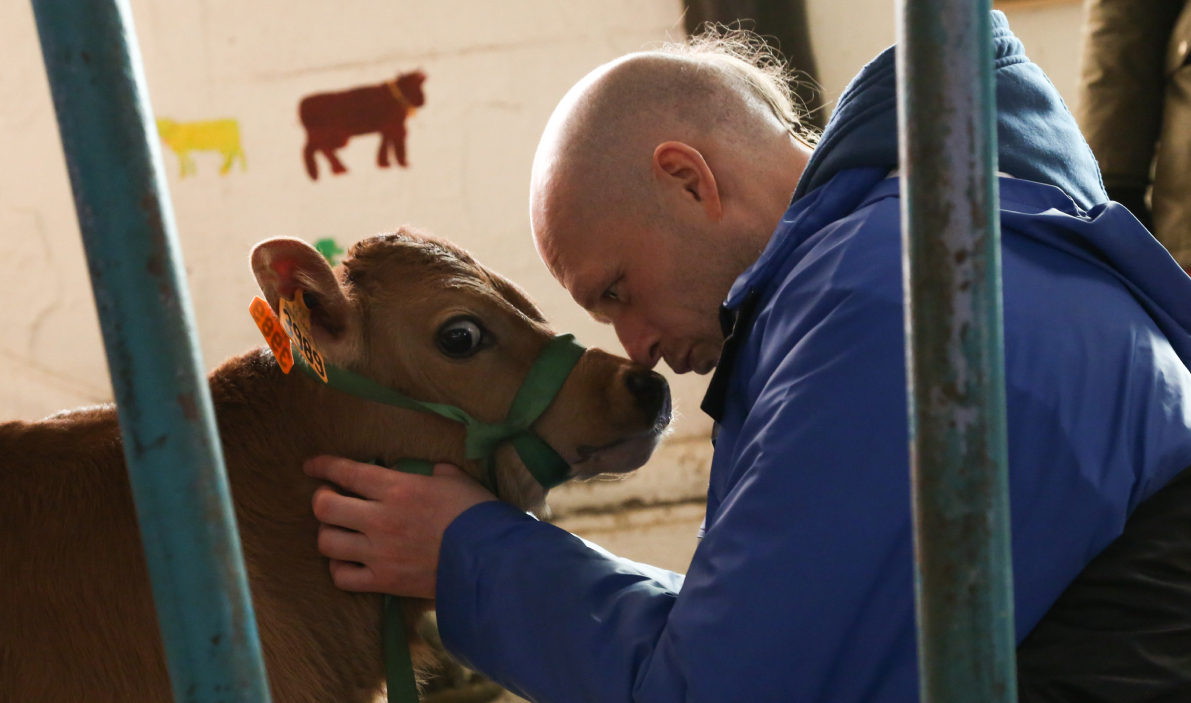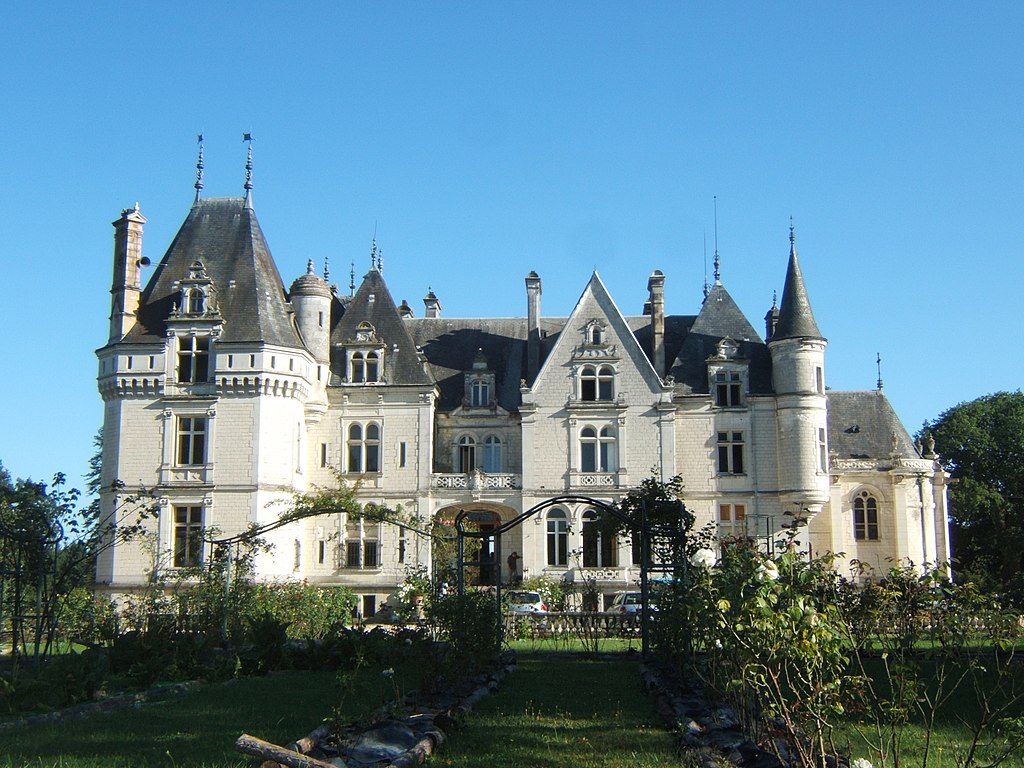Chandni Raj, Strategy Consultant – Energy and Environment, New Mayapur

The New Bahulavana goshala in New Mayapur, France, demonstrates dairy farming that provides holistic benefit to the ruminants, the environment they live in, along with the people who care for them. Founded to fulfill Srila Prabhupada’s instructions to provide protection to cows and work with bulls on the land, the goshala is a perfect testimony to the benefits of Vedic wisdom. While providing superior quality milk that can not be produced in industrial farms, cows and bulls also greatly boost ecosystem health while improving the quality of life in the village.
Can a dairy farm be environment-friendly?
The dairy industry has gained notoriety no less than automobiles for the emissions they produce and is considered a threat to the environment. However, cows in their natural habitats are an integral part of the ecosystem and very much required to maintain its complex biodiversity. They also have an important role to play in nutrient recycling and maintaining soil health.
“Factory farming disrupts the harmony inherent in the ecosystem through massive and aggressive increase in the number of cows for milk and meat production,” said Gandharvika Rai Devi Dasi, Vice President, New Mayapur. “The excessive emission production, water consumption that dairy farms are accused of are contributed by industrial farms which work contrary to the natural harmonious system and create an imbalance,” she explained. Further, emissions result from massive clearing of forests to create land to grow feed for livestock as well as the manufacture, transport and distribution of meat.
Cow manure and fertilizers used to produce feed infiltrate into ground water resources threaten marine life and contaminate freshwater. Chemicals-based additives in feed too contribute to emissions. Industrialized farming leads to soil erosion and degradation, especially when grazing is done on lands unsuitable for that.
What makes New Bahulavana different?
New Bahulavana works in perfect accordance with Mother Nature, as per Srila Prabhupada’s instructions. “Here, cows follow their natural lifecycle, graze on open lands, breathe fresh air, are fed organic grass free of chemicals and pesticides and are taken care of until their natural death. They are not impregnated artificially nor are they slaughtered for meat, thereby curbing emissions caused by these practices,” explained Locanananda Das, President, New Mayapur.
Instead of overgrazing practiced in factory farms, responsible grazing practices are followed here, which result in replenishing top soil. “New Bahulavana is maintained in the style of traditional Vedic cow farms where cows are protected and live in harmony with the environment,” said Namacharya Das, President, New Mayapur and head of New Bahulavana. There are currently two bulls Samba, Deva, three lovely cows Ganga, Surabhi, Gomata and three calves Kapila, Mangala and Dharma
And here is the icing on the cake…
Organic milk products from local farm help achieve dairy self-sufficiency and curb emissions incurred in milk production, packaging, transportation and distribution. Stress-free lives keep cows healthy, prevent stress-borne diseases and provide high quality milk. Ahimsa (non-violent) milk products from the farm are offered to our deities. Calves stay close to their mothers and milking is stopped a few weeks before delivery to save milk for calves, which helps bring up healthier cattle. Cow protection benefits humans as well. Close interactions with cattle help relieve stress, promote mental well-being and boost overall positivity.
Thus, cow protection as outlined in Vedic scriptures and advocated by Srila Prabhupada can be highly beneficial to the environment and human society as a whole.
To pay a visit to New Bahulavana, or support the cow protection farm with a monthly or yearly donation, or to volunteer at the farm, please click on www.newmayapur.com
For enquiries, please write in to contact@newmayapur.com




